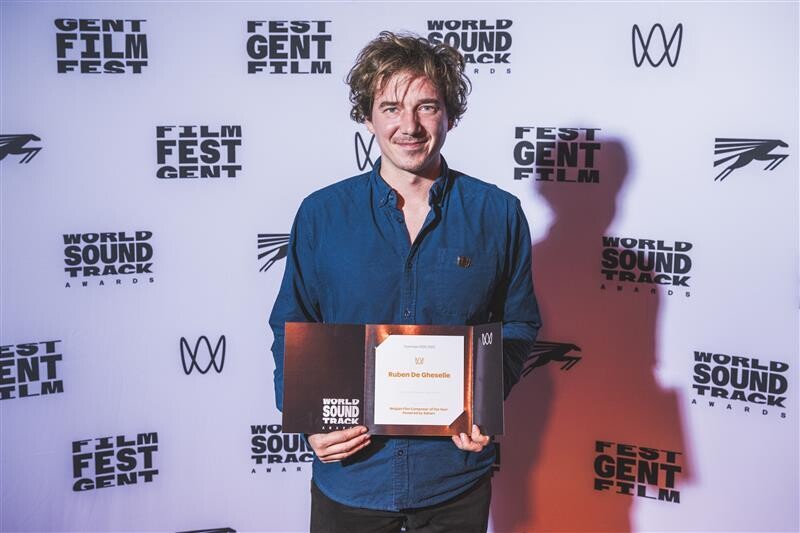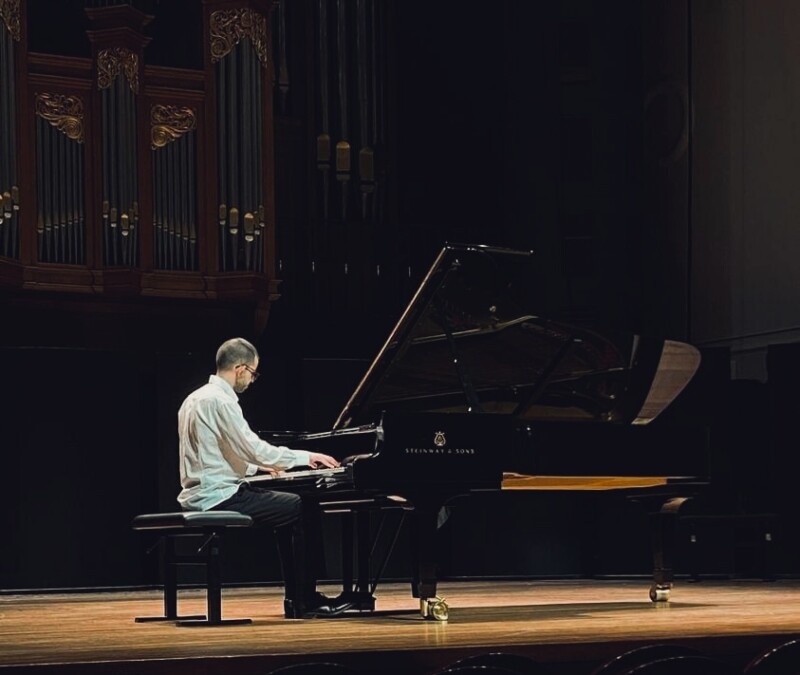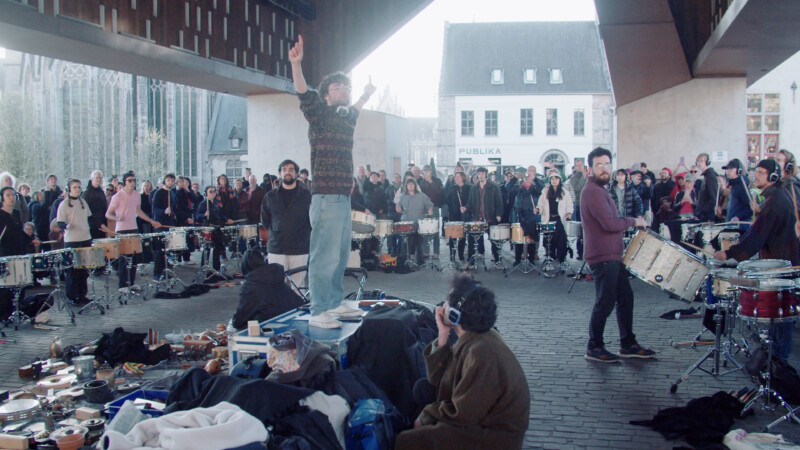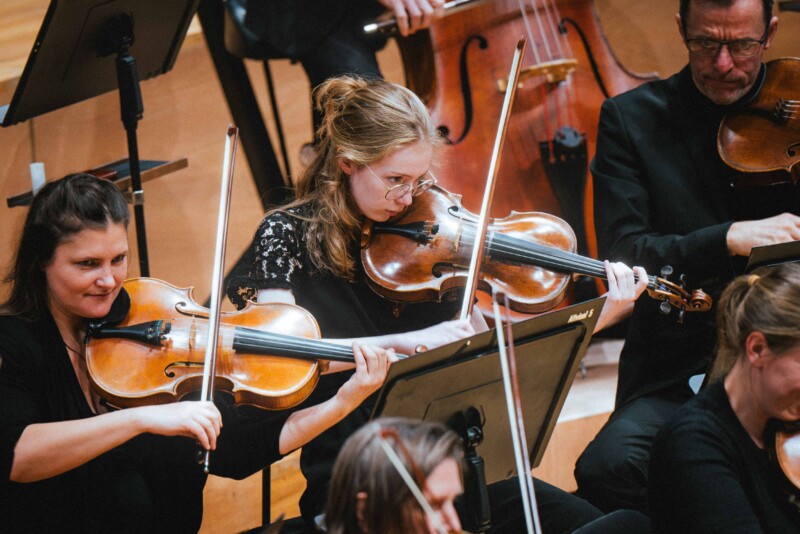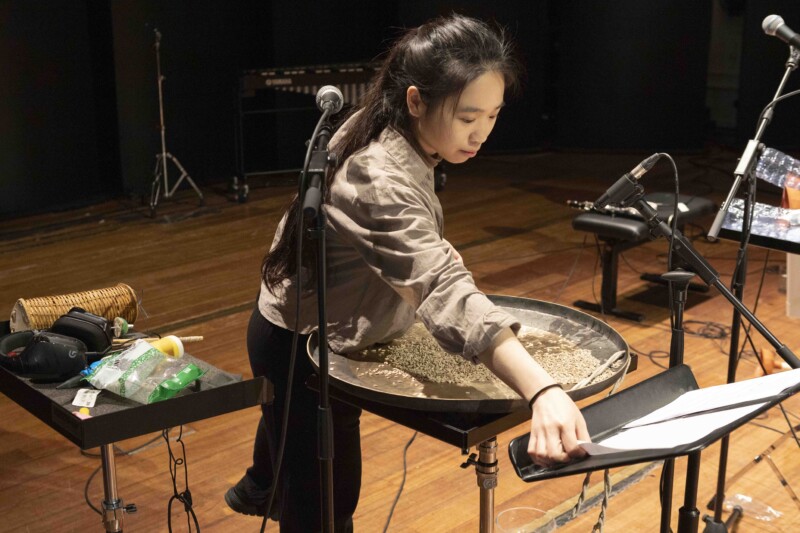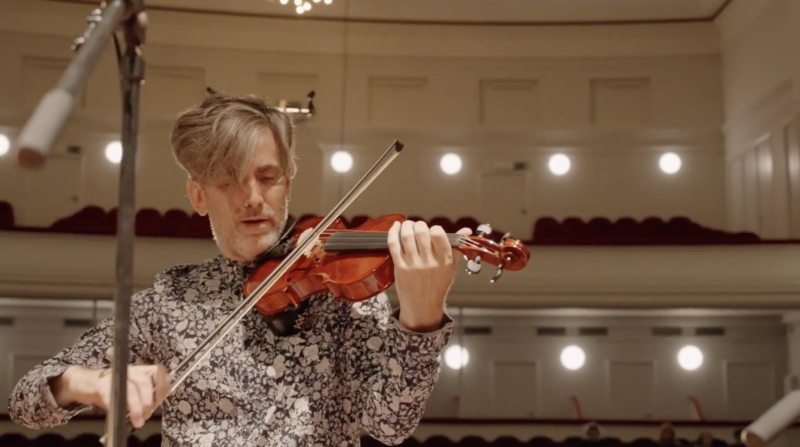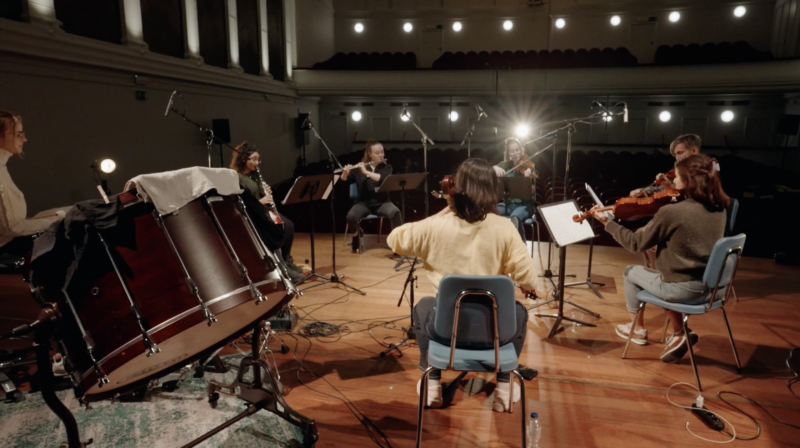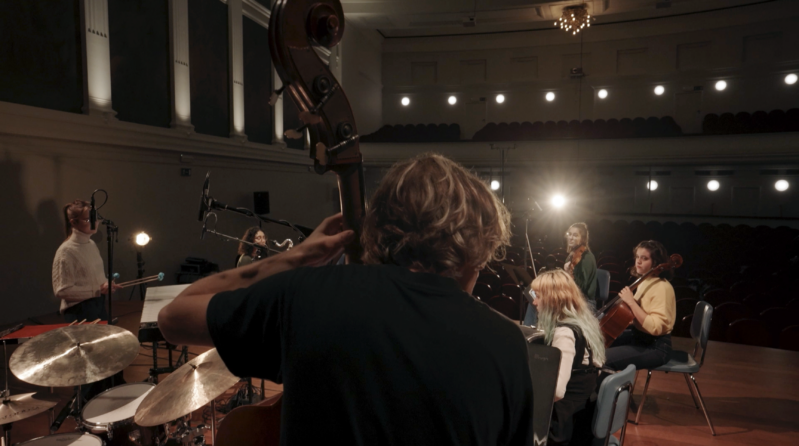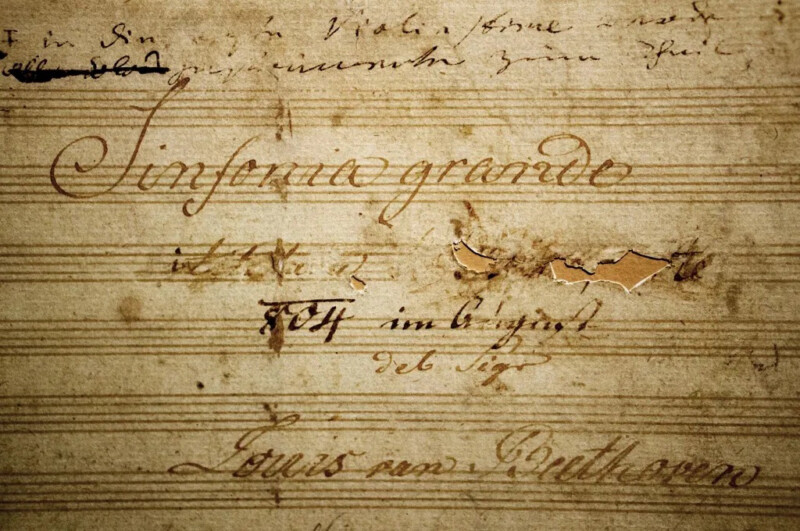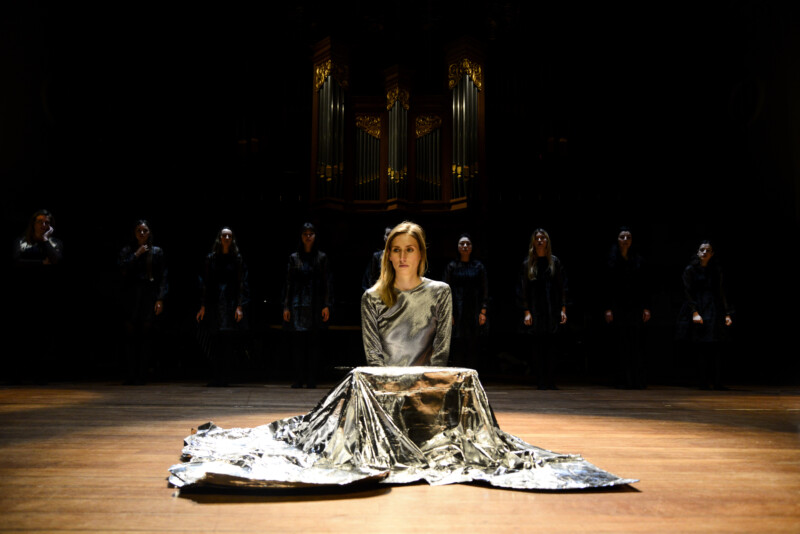classical music
graduating option performing music
study path classical music
3+2 years
English master
profile music programme
Man is constantly confronted with new stimuli that have never been perceived before and to which he must respond. This is precisely why man can never be not creative.
(interpretation of Arnold Gehlen, ‘Man: his nature and place in the world’).
Creativity at its core
The search for new, original solutions. That is perhaps the simplest definition of creativity. The music programme at KASK & Conservatorium puts this competence at the heart of the training of students to become performing musicians, composers, producers, builders, artists. Because we are training you to be the music makers of the future. With certainty, we can say about the future: it will be different from today.
Creativity is everywhere: in interpreting an existing piece of music, writing a composition, song or arrangement, dealing with your audience, communicating with fellow musicians and organisers, building a portfolio, developing a stimulating study method, searching for the right sound, honing a narrative,... In short: in forming your own unique and authentic artistic profile.
To achieve this, the curriculum of the music programme offers a broad and solid musical and theoretical basis, with plenty of room for self-chosen specialisation. You can specialise in a certain style (jazz, pop, classical, experimental, etc.) in a certain field (production, songwriting, film composition, contemporary performance, etc.) or choose to broaden your horizons by combining expertise, genres and disciplines. Moreover, thanks to collaborations with the other art programmes within KASK & Conservatorium, this can be done across different art forms.
In our educational organisation, we also provide the necessary time and room to develop creative skills. Four times per academic year, the teaching weeks give way to project weeks, where guest speakers are invited and masterclasses are organised, where we focus on interdisciplinary cooperation and co-creation, on internal or external project collaboration, or on deepening certain facets of musical practice.
Your artistic practice as a performing or creative musician, on your instrument or in the studio, in a group or individually, is always accompanied by critical reflection. Besides the necessary technical skills, you focus on your own artistic development. How does your work relate to that of others? Where do your strengths lie and how do you best develop them? In applied theoretical subjects such as ear training, rhythm, music analysis and harmony, you will learn the necessary basic competences. General education like philosophy, for instance, creates a broader frame of reference. In your artistic practice, everything eventually comes together and you learn to place yourself within that broader context.
The music programme strives for broad employability in the professional field. During your studies, you will have personal contact with many people in the broad sector: first and foremost, your fellow students and teachers from all the programmes at our school, but also renowned guest speakers, programmers, visiting ensembles and bands in our MIRY Concert Hall and Club Telex, and contacts you get to know during internships or international exchanges. This is how we help you build your network, with Ghent, the UNESCO Creative City of Music, as your springboard.
read more about classical music
Artistic practice
This is the core of your programme. Under the careful guidance of experienced and leading artistic practice teachers, you will continuously build your musical mastery, both as a soloist and in ensemble. They also help you, together with the theoretical mentors, reflect critically on your practice, the repertoire you work on, the professional field you aim for. This is how you systematically build your portfolio, in which, sometimes intuitively and sometimes systematically, you develop yourself into an authentic artistic personality, aware of your qualities and working points.
Supporting practices
In the supporting practice subjects, you acquire competences that can inspire your artistic practice. They help you break out of the fixed structures of your core practice, to challenge your own creativity and that of your fellow musicians.
A solid theoretical foundation
Ear and rhythm training, harmony theory, counterpoint, music analysis and history form an indispensable foundation for your artistic practice. Combined with general cultural-theoretical knowledge, they provide you with the necessary frame of reference to stand in practice as a critical and informed musician.
A personalised curriculum
The curriculum offers plenty of room for self-chosen specialisation, for deepening and widening your artistic practice. Already from the second bachelor year, you get plenty of opportunities to choose minors and later specialisations. This can be close to your own practice, e.g. with a minor in composition, live electronics or audition practice, and with specialisations such as chamber music, writing or contemporary performance practice. If your strength and interest lies in broadening your horizon, you can season your music practice with experience in other art programmes at our school, such as animation, photography or installation art. In some cases, we organise specialisations in close collaboration with an external professional partner. For example, as part of the orchestra specialisation, you may play one or more productions with Symfonieorkest Vlaanderen.
Project-based education
During 4 weeks in the academic year, we pause the regular class schedule to work out an artistic project together, to delve into a particular facet of musical practice, or to engage in dialogue and co-creation with other artists. Here we also address the necessary professional competences, through critical reflection on the concept, the creation process and the intended result.
Artistic research
Every artistic production, from music compositions to music recordings and concerts, involves some form of artistic research. In an academic music programme, this takes concrete form in an artistic research project, which is closely linked to your personal artistic practice and your portfolio. Your thesis concludes your master's programme, and at the same time marks the beginning of your quest as a professional musician, with the necessary knowledge and skills to navigate.
NEW: orchestra specialisation in collaboration with Flanders Symphony Orchestra
As of the 2025–2026 academic year, KASK & Conservatorium — in collaboration with Flanders Symphony Orchestra — will launch a new option within the master in classical music: orchestra specialisation for master students violin, bassoon, oboe or percussion.
Orchestra specialisation
A maximum of five selected students will be able to join Flanders Symphony Orchestra (SOV) for an entire academic year. The initiative is the result of a close collaboration between both institutions and is inspired by the successful model of the Royal Conservatory and the Residentie Orkest in The Hague, where students have been gaining hands-on experience in the professional orchestral world for years.
The programme was piloted last academic year. The positive experiences and results of that test project prompted the structural integration of this initiative into the curriculum. Starting in 2025–2026, the format will be offered as a full-fledged specialisation to a broader group of students.
This collaboration offers students a unique learning experience. They receive intensive coaching from experienced orchestra musicians and participate as full-fledged members in multiple productions throughout the season.
“This isn’t just an internship where you observe rehearsals,” explains general director Jos Roeden. “Students are truly integrated into the orchestra during both rehearsals and concerts. That makes this collaboration unique in Flanders.”
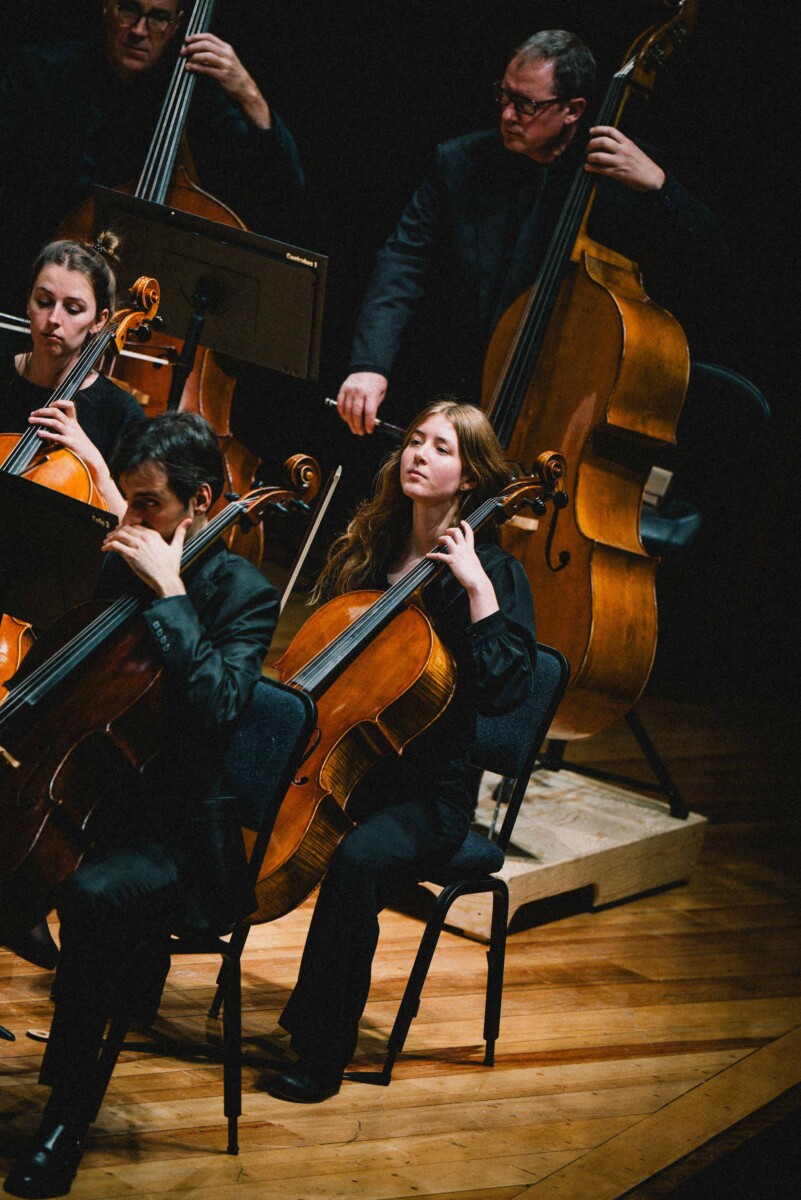
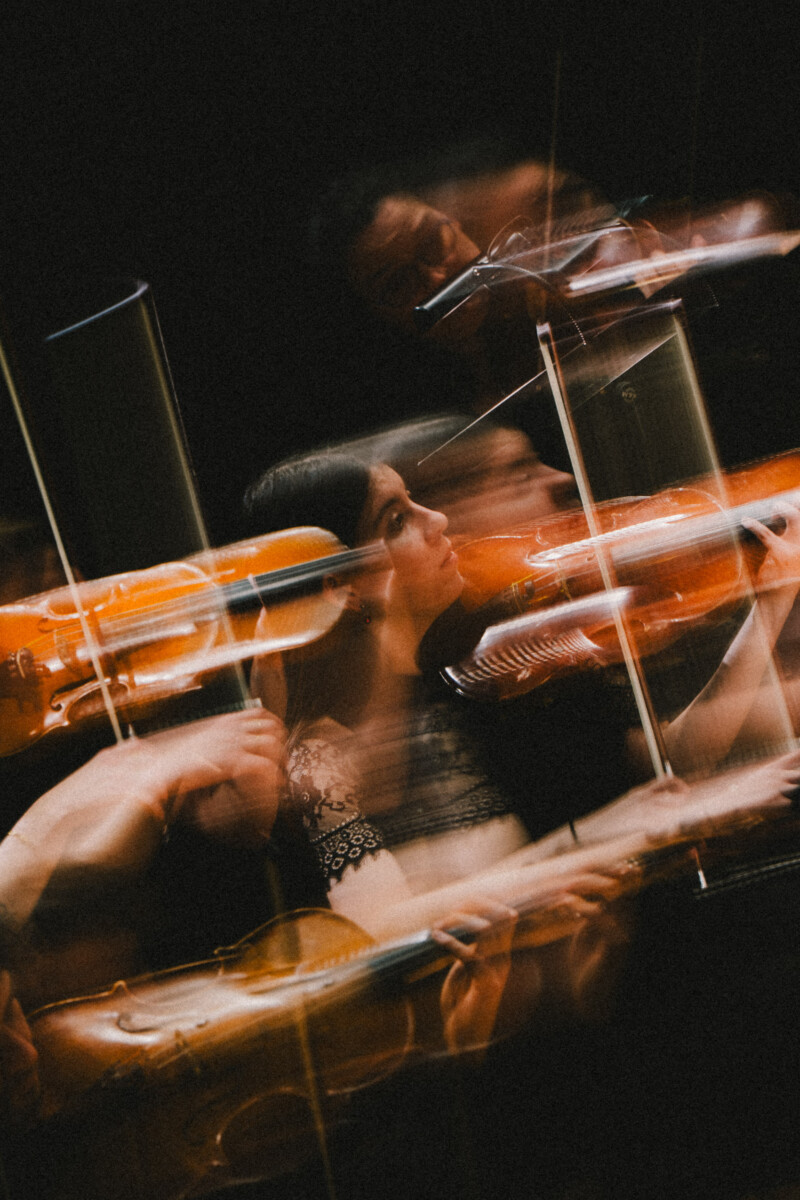
A unique learning experience
This collaboration also responds to a broader need: many students are technically strong after graduation but lack practical experience in a professional orchestral context. This specialisation structurally bridges that gap.
The programme aligns with Flanders Symphony Orchestra's broader talent development mission. “We want to offer students an experience that meaningfully enriches both their studies and future careers,” says Roeden. “Here, you truly learn what it means to be a full member of a professional orchestra — a rare opportunity during your studies.”
KASK & Conservatorium will continue to offer its existing programme: the school orchestra will remain active, as will masterclasses with Flanders Symphony Orchestra, opera productions, and collaborations with partners such as the International Opera Academy.

Selection and quality
The specialisation is open to Master 1 and Master 2 students. Selection takes place via an audition, scheduled for Friday 27 June 2025. Only students who meet the professional standards of the orchestra will be admitted.
The first edition targets five students across four instrument groups:
- 2 violins — participation in four productions
- 1 bassoon — participation in four productions, two of which are partial
- 1 oboe — participation in four productions, two of which are partial
- 1 percussion — participation in two productions (Mahler 4 and The Lord of the Rings)
The students are integrated into the orchestra section as full members and receive coaching before, during, and after each production. In addition, they are awarded 9 ECTS credits, which are part of their curriculum. Flanders Symphony Orchestra also provides reimbursement for expenses.
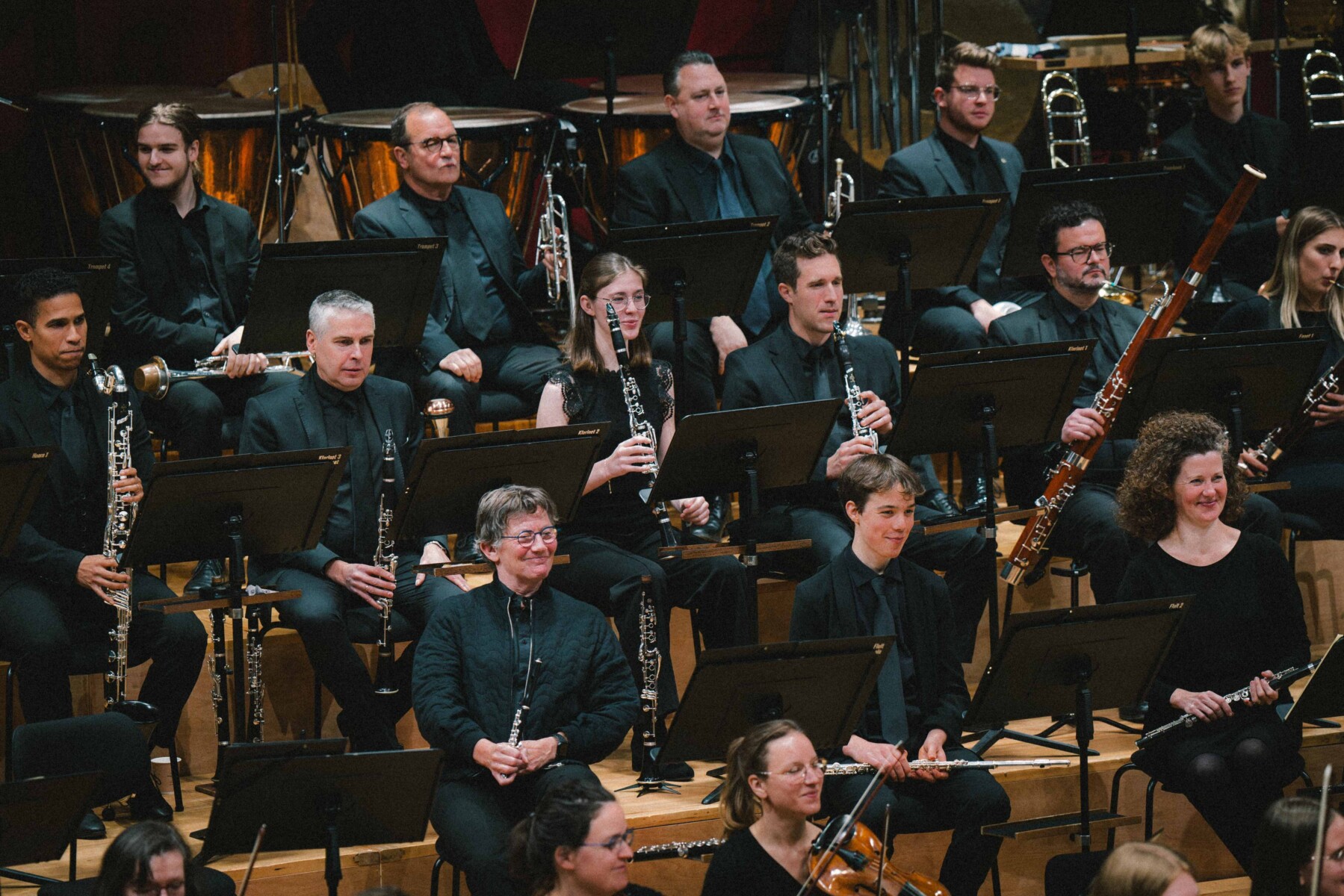
teachers
Study programme, instrument (new starting 2025-26)*
study programme, keyboard instruments, guitar, lute (new starting 2025-26)*
Study programme, voice (new starting 2025-26)*
* can be consulted on hogent.be/studiefiches from June onwards.
Enrolment & tests
how do you register for the bachelor's degree?
see the dates and assignments for the test
how do you register for the master's degree?
see the dates and assignments for the test
If you want to apply for an academic bachelor's, you must first pass an artistic admission test. To enter the master's programme, you will take part in an orientation test. These are organised several times per academic year.
ENGLISH MASTER
In addition to a Dutch-language master, this study path also has a fully English-language counterpart. Every academic year, dozens of foreign students start in the English master's at KASK & Conservatorium.
There are no differences in curricula, competencies, learning outcomes or organization between the English-language programmes and their Dutch-language counterparts. English-speaking candidates holding a master’s degree in music can also go in for the advanced master contemporary music or one of our postgraduate programmes.
Don’t hesitate to contact the study and learning track counsellors with your questions.
quality assurance
KASK & Conservatorium's programme in music has been assessed against the internationally recognised standards of MusiQuE in 2022.
credits
- RLLR.XXL, 19.03.2025, video: Ties Kalker
- Graduation 2024, Wang Xiaocheng, video: Ties Kalker
- Opendeurdag 2023, photo: Lukas Neven













